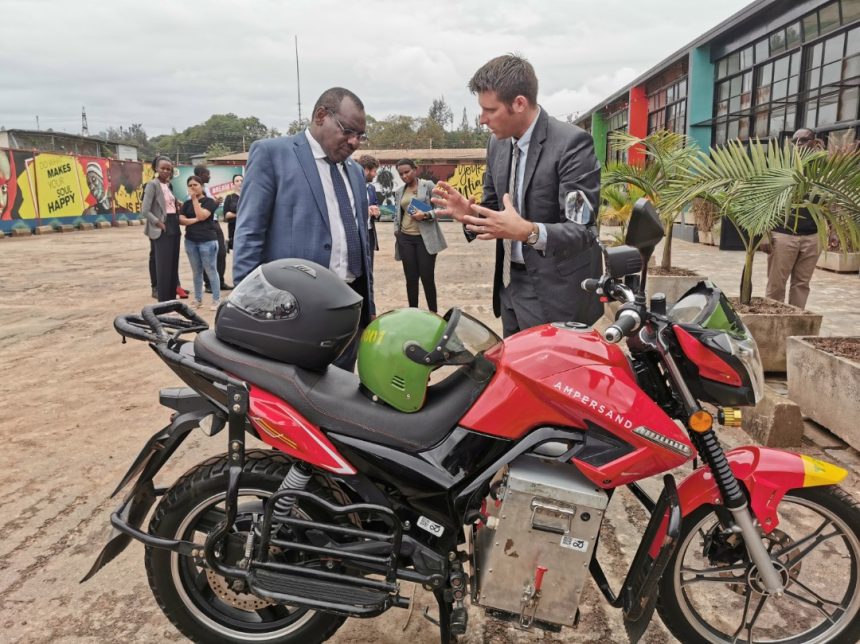About 60% of Rwanda’s public transportation heavily relies on motorcycles. Positioned as a pioneer in eco-friendly initiatives for the continent, the East African nation is taking significant strides through the efforts of Rwandan startup Ampersand.
Ampersand, at the forefront of this green movement has revealed ambitious plans to introduce 600,000 electric motorbikes in Kigali as the primary launch site with Nairobi, Kenya, Kampala and Uganda following suit.
Alice Rwema, the startup’s general counsel, highlights their commitment to competitiveness across vital manufacturing stages. She emphasizes Ampersand’s dedication to transitioning from millions of petrol bikes to an exclusive fleet of electric bikes in the coming years.

“We’ve made substantial investments in key areas including ongoing commitments to software development. Our proprietary amper ropes play a crucial role in managing swap stations and batteries, instilling confidence in our product,” says Rwema.
The World Health Organization attributes a significant portion of air pollution and greenhouse gas emissions to the transport sector. These emissions contribute to the greenhouse effect resulting in rising global temperatures and extreme weather patterns issues particularly challenging for East Africa.

Undeterred by the region’s challenges, Ampersand aims to make a positive impact. Rwema states, “Each of our bikes saves 2.5 tonnes of greenhouse emissions daily. Quick math reveals that with 5 million bikes across Africa we could annually prevent emissions equivalent to 12 million tonnes.”
Felix Nishimiye, an owner of Ampersand’s electric motorbike attests to the economic benefits. “I’ve been using Ampersand’s electric motorcycles for almost three years. Charging costs me 2000 Rwf ($1.58) for an 80km range, compared to the 5000 Rwf ($3.95) I used to spend on petrol for the same distance.”
With a successful four-year track record, Ampersand’s motorcycles have collectively covered 180 million kilometers in Rwanda preventing 8,000 tons of carbon emissions. The startup’s journey symbolizes a sustainable shift in transportation, promising a cleaner and cost-effective future for riders across East Africa and beyond.









